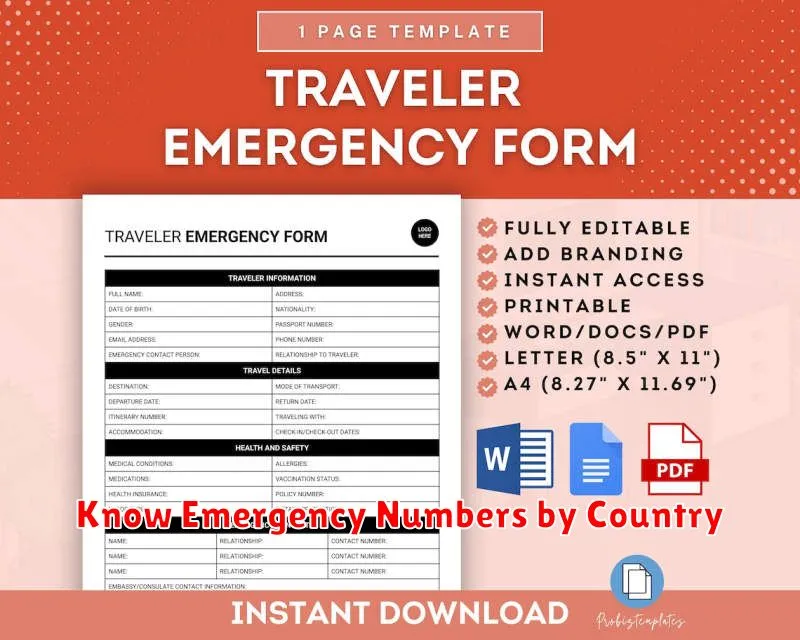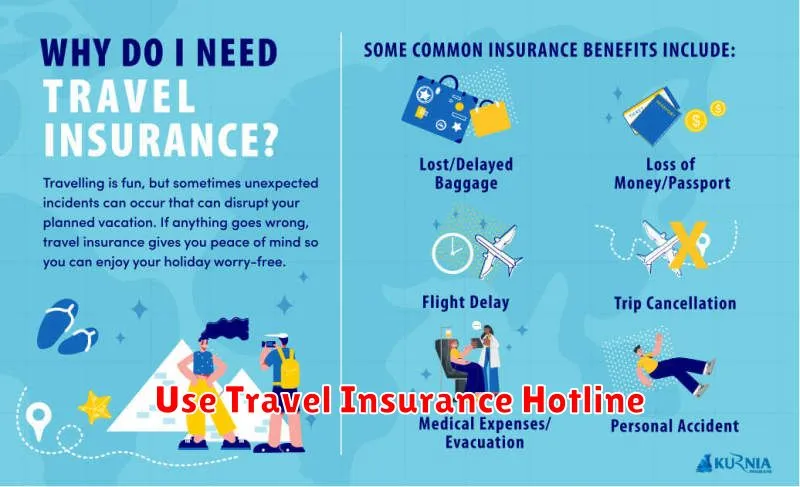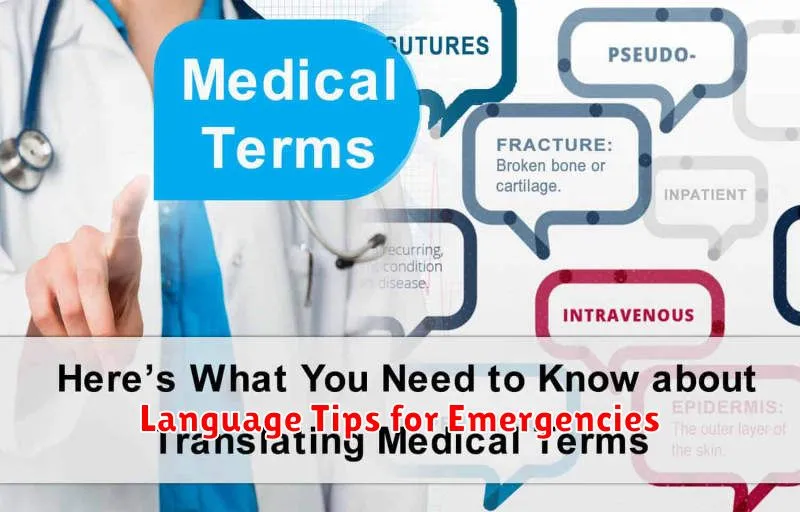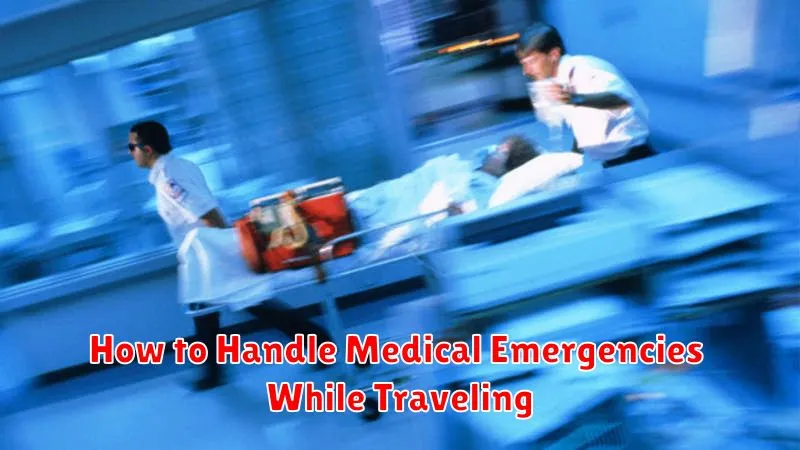Traveling can be an enriching experience, but it’s crucial to be prepared for unexpected events, especially medical emergencies. Whether you’re embarking on a domestic trip or venturing abroad, understanding how to handle medical emergencies while traveling can make all the difference. This article will provide essential guidance on navigating medical emergencies, offering practical advice and resources to ensure your safety and well-being during your travels. From pre-trip planning to on-the-ground responses, we’ll cover the key steps to take in various medical emergency situations.
Navigating medical emergencies while traveling can be daunting, but with adequate preparation, you can mitigate potential risks and ensure a smoother experience. This comprehensive guide will address critical aspects of handling medical emergencies abroad and domestically, including assembling a travel first-aid kit, securing travel insurance, understanding local medical resources, and managing common travel-related illnesses. By following these recommendations, you can travel with greater confidence and peace of mind, knowing you are equipped to handle medical emergencies effectively.
Stay Calm in Emergencies
Remaining calm during a medical emergency is crucial for clear thinking and effective decision-making. Panic can impede your ability to assess the situation accurately and administer necessary first aid.
Take a deep breath and try to focus. Remember the basic steps: assess the scene for safety, check the victim’s responsiveness, and activate local emergency services by calling an ambulance or seeking help from bystanders.
Having a pre-determined plan can help manage stress in these situations. Consider potential scenarios and outline the actions you would take. This mental preparation can make a significant difference in your ability to stay composed under pressure.
If traveling with companions, delegate tasks to maximize efficiency. One person can call for help while another gathers necessary information or provides basic first aid. Clear communication is essential in coordinating efforts effectively.
Prepare with the Right Documents
Before embarking on your trip, ensure you have the necessary documents to navigate potential medical emergencies efficiently. This preparation can significantly impact the ease of access to appropriate medical care and insurance coverage while abroad.
Essential Documents
Carry both physical and digital copies of the following essential documents:
- Passport and Visa: These identify you and your legal status in the foreign country.
- Travel Insurance Information: Keep your policy number, emergency contact information, and coverage details readily available.
- Medical Information: This should include a list of any pre-existing conditions, allergies, current medications, blood type, and emergency contact information.
- Physician’s Letter: If you have a pre-existing medical condition, a letter from your doctor explaining your condition and any necessary medications can be beneficial.
Organizing these documents in a readily accessible and waterproof travel wallet can save valuable time in an emergency.
Know Emergency Numbers by Country

Knowing the correct emergency numbers is crucial when traveling internationally. Emergency numbers vary significantly from country to country, and assuming they are the same as your home country can be a dangerous mistake.
Before your trip, research the emergency numbers for your destination. Note that some countries have separate numbers for different services (police, fire, ambulance). Keep a written record of these numbers easily accessible, separate from your phone, in case it’s lost or stolen.
| Country | Emergency Number(s) |
|---|---|
| United States | 911 |
| United Kingdom | 999, 112 |
| Australia | 000 |
| Japan | 119 |
This table shows only a few examples. It is essential to research the specific numbers for your destination.
Use Travel Insurance Hotline

In the unfortunate event of a medical emergency abroad, your travel insurance hotline is your first point of contact. It’s crucial to have these details readily accessible, either saved on your phone or printed and kept with your important documents. Don’t delay contacting them, even if the situation seems minor. Early reporting ensures smoother handling and allows your insurance provider to guide you effectively through the necessary steps.
When you call, be prepared to provide your policy number, location, and a concise description of the medical issue. The hotline operator will advise on the nearest appropriate medical facility and explain the process for covering medical expenses. They can also assist with other related matters, such as arranging medical evacuation if necessary.
Keep detailed records of all communication with the hotline, including the date, time, and the name of the operator you spoke with. This information can be vital for claim processing later on. Also, be sure to keep all medical receipts and documentation related to the emergency.
Find Nearest Embassy or Hospital
In a medical emergency abroad, swift action is crucial. Locate the nearest hospital or your country’s embassy or consulate. Embassies and consulates can provide assistance, including contacting family, helping with medical care access, and offering advice on local regulations.
Prior to your trip, research and save contact information for your embassy or consulate at your destination. Keep a physical copy in case of technology failure. Note local emergency numbers as well. Many countries use different numbers than your home country.
If your condition is not life-threatening, your embassy or consulate may be the better first point of contact. They can guide you towards appropriate medical facilities and help overcome language barriers.
If it is a life-threatening emergency, immediately dial the local equivalent of 911 or other emergency services. Proceed to the nearest hospital or medical facility.
Language Tips for Emergencies

Communication barriers can significantly complicate medical emergencies abroad. While ideal to learn basic medical phrases in the local language, it’s not always feasible. Prioritize learning key phrases like “Help me,” “I need a doctor,” and “It’s an emergency.”
Download a translator app on your phone and ensure it functions offline. This tool can prove invaluable in conveying crucial information about symptoms, allergies, and medical history.
Carry a medical alert card, preferably translated into the local language, listing essential medical information. This can save precious time in critical situations.
Learn basic gestures for common medical needs like pointing to the affected body part or mimicking symptoms. While not a substitute for verbal communication, it can help bridge the gap.
If possible, travel with a phrasebook containing medical terminology. Even basic phrases can greatly assist medical professionals.
Keep Copies of Medical Records
Maintaining copies of your essential medical information is crucial when traveling. This allows healthcare providers to quickly access vital data in an emergency, even if you’re unable to communicate effectively.
Recommended documents to copy include:
- A list of current medications, dosages, and allergies
- Pertinent medical history, including diagnoses and past procedures
- Emergency contact information
- Your doctor’s name and contact details
- Insurance card information (policy number, provider)
Consider storing these copies both physically and digitally. Carry paper copies in a secure, waterproof location, separate from your original documents. A digital copy, stored on your phone or in a secure cloud service, can provide readily accessible backup.
Ensure that these copies are up-to-date and reflect your current health status.

